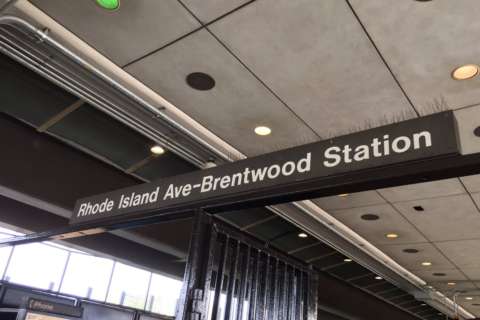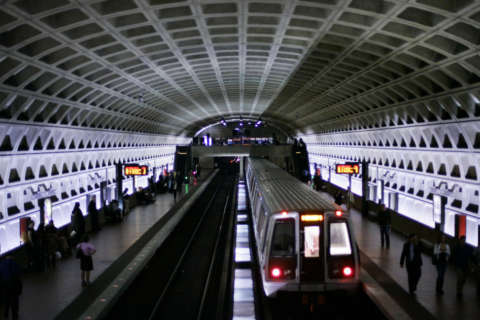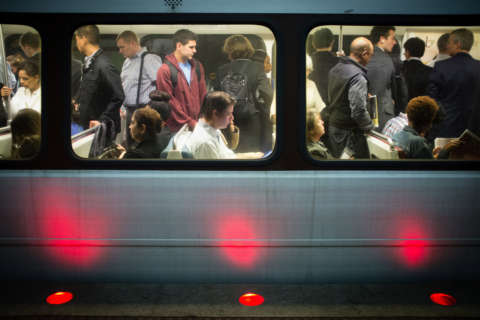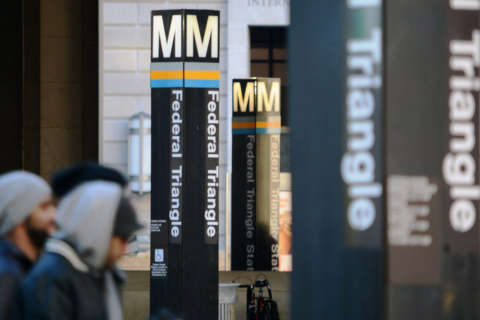WASHINGTON — Expanded cellphone service for riders in Metro tunnels, a completely new radio system and fire alarm upgrades are among safety fixes proposed in Metro’s latest capital budget.
Metro is also in the middle of replacing the emergency trip station system, which provides emergency phones every 800 feet along the tracks with the ability to cut power to the third rail.
“The existing Emergency Trip Station (ETS) system has an aging, deteriorating infrastructure with obsolete electrical components and communications technology that frequently causes the system to fail,” Metro’s capital budget proposal said.
A Metro Board committee will be briefed on the capital budget proposal Thursday. A public hearing is scheduled Jan. 31.
The proposal includes $19.5 million through completion by 2023, in addition to the $2 million being spent in the current budget, to complete the emergency trip station upgrades.
The new system is supposed to include “intelligent telephones” that can self-diagnose any problems so workers know which phones need fixes.
Radio, cellphone upgrades
Metro plans to have cellphone service available in tunnels between Union Station and Dupont Circle, Metro Center and Ballston, and Pentagon to King Street by June 2019. Some other stretches will have service activated this fall.
Previous schedules have projected that cell service on the final stretches of the Green and Red lines will come online in 2020. Metro has also added open Wi-Fi at most underground stations, with others due to come online over the next year or two.
Cellphone service in Metro’s 50 miles of tunnels can be more than a convenience for riders, since it can also offer a backup mode of communication in the case of emergencies or radio failures, such as the “spotty” radio service during last week’s derailment. Radio issues have been a recurring problem in Metro tunnels, including when a train filled with smoke near L’Enfant Plaza three years ago, killing passenger Carol Glover.
While Metro continues to keep up its existing aging radio system, the agency is making quicker progress than previously planned on a completely new radio system that meets Federal Communications Commission mandates to switch to a new frequency.
Metro expects to have all leases for the aboveground radio tower sites for the new system signed in the budget year starting July 1, which will allow construction to get underway. Metro will also begin installing new radios on rail cars and buses.
The radio and cellphone project is expected to cost $322 million total through 2023.
Fire alarm upgrades
A $138 million fire alarm system upgrade, expected to be completed by 2026, would address National Transportation Safety Board recommendations to bring stations up to current fire-protection standards. Metro is continuing designs and expects to begin the procurement process after July 1.
The fire alarm upgrades come as Metro is separately working to improve existing fire safety inspections. The fire marshal’s office grew from only a single person to an eight-member team over the last year or so.
An internal review in November found issues with the office’s roles and responsibilities and a general lack of oversight and documentation of inspection, testing and maintenance of fire safety systems.
None of the fire marshal’s reports provided to Metro’s quality assurance department identified any specific code violations, and instead identified minor housekeeping observations rather than the important standpipes, sprinklers and communication systems.
“There is no evidence (photo or written) that these elements were inspected,” the internal review found.
Many of the office’s apparent responsibilities have fallen to other departments.
Metro expects to have a new comprehensive inspection, testing and maintenance program for fire protection systems completed later this year.








